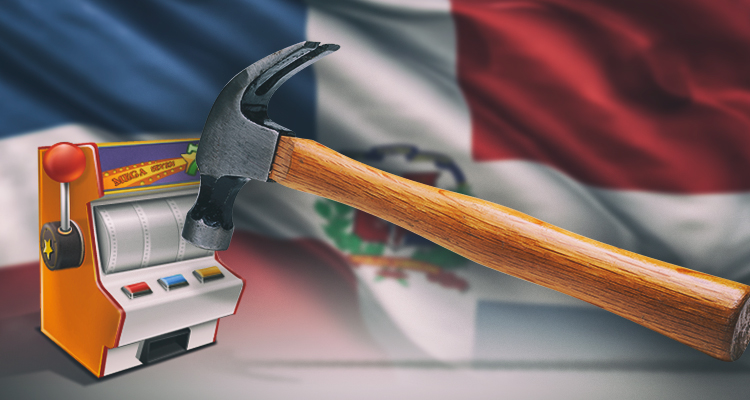As part of an ongoing campaign against illegal gambling in the Dominium Republic, upwards of 8,000 pieces of gaming equipment used in unauthorized gambling operations have been destroyed by the country’s Ministry of Finance, according to G3 Newswire.
The equipment was seized in 1,376 betting centers located in several cities throughout the country that were found to be operating illegally, as explained by Oscar Chalas, the head of the Casino and Gaming Control Board. In total, the operations, which took place during December last year and January and February 2017, netted the confiscation of 663 slot machines, 251 pieces of electronic payment equipment, 2,138 monitors, 1,950 keyboards, 2,053 printers, 733 routers, 100 inverters, and 254 CPUs.
According to the report, Chalas explained that 10 non-profit institutions will be the recipients of a total of 1,936 pieces of equipment. The donated equipment will be part of educational programs carried out by the non-profits in poor communities and neighborhoods throughout the country. Chalas reportedly said that in addition to being part of the largest destruction of illegal equipment used for gambling in the Dominium Republic’s history, the operation was the second of its kind conducted under Donald Guerrero Ortiz, the current Minister of Finance.
Chalas said, “During the operations, which took place in December 2016 and January and February of this year, 1,251 betting centers were closed and 125 were given notice. The total amount of money retained during the operations and that were handed over to the National Treasury was RD$1,590,253,” according to the news agency. He also explained that sanctions were high because illegal gaming presented a significant risk to minors. “The sanctions, which are carried out in coordination with the Attorney General’s Office, are drastic for violators of the law because children are the main victims because they can become addicted to games,” Chalas said.
The gaming board head added that illegal gaming can result in a prison sentence ranging from three months to two years.
Due to the increase in illegal gambling, tax evasion, and operators having to shoulder the rising tax burden, gaming revenues in the Caribbean country are falling year on year. However, despite the fact that the number of closures and on-site inspections increasing by the gaming board, illegal gaming remains the largest obstacle to the growth of the industry, according to the report.
Late last year, Chalas called on citizens of the country to work with the Zero Tolerance campaign.



